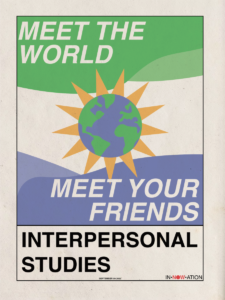
Digital Dangers
The harm that resonated with me is the issue of social isolation. In my experience, it is extremely easy for the algorithm to draw people down into a pit of despair or of misplaced hope; the problem of propaganda is pervasive and subtle. While it isn’t particularly brought up in the PEW article, the issue of radicalization is a symptom of various harms caused by technology. Digital diviseness, durress and deficits create an atmosphere of confusion and distrust in the systems of our life, and can even draw people into feeling that life itself is something to distrust. However, I’d consider this a digital danger due to its effects on humans that extend to how we act in the real world.
This sense of being adrift in life, uncertain and at the whims of what the algorithm feeds you when you’re online, can lead to a strong dependency on your technology to help you make sense of things. It’s recognizable at more outrageous scales– conspiracy theories, political extremism, etc. But it has subtle, less noticeable levels: children looking up how to become mermaids, or how to get girls in middle school; teenagers searching for the effects of drugs on themselves or how to formulate a desirable personality. These can tug on our minds and draw us deeper into a rabbit hole based on what the algorithm gives us; teenagers may find themselves reading how LSD can help you see aliens and ascend to a higher reality, boys may be told that stereotypes about women are true. So much misinformation has existed online and it precedes Trump-era news cycles by years. Social media has only exacerbated the departure from reality that many sources call you in to. Even recently, you can see children in classrooms citing the misogynistic takes of Andrew Tate.
I’d like to maintain free information online, even if it is at the user’s detriment. Instead, I’d rather children be taught more human and social skills in classes. The only way people learn how to act is through trial-and-error or by observation. People need to be taught from a young age that there are lies online; and we need to be taught how to interact with one another. People are so awkward without their phones to show off; most interactions I’ve had with my own friends are to show funny images, or texting them without ever seeing them in person– even if they’re just a mile away. There needs to be a renewal of love for the world we live in so that people are inclined to stay in it instead of seeking means of escape.
As such, I propose for Interpersonal Studies as a class for people to take in school. In it, people are taught general human nature and are exposed to truths that have existed for years before the internet. Teaching children how to react to upset friends, or fun things to do with each other in the real world and online. Naturally, they’d need to have an active curriculum so that they can look forward to going to the class; class trips or activities emphasize interpersonal friendships that continue into middle school and even high school. So my accompanying visual would be a poster to be put up in the room.
You must be logged in to post a comment.